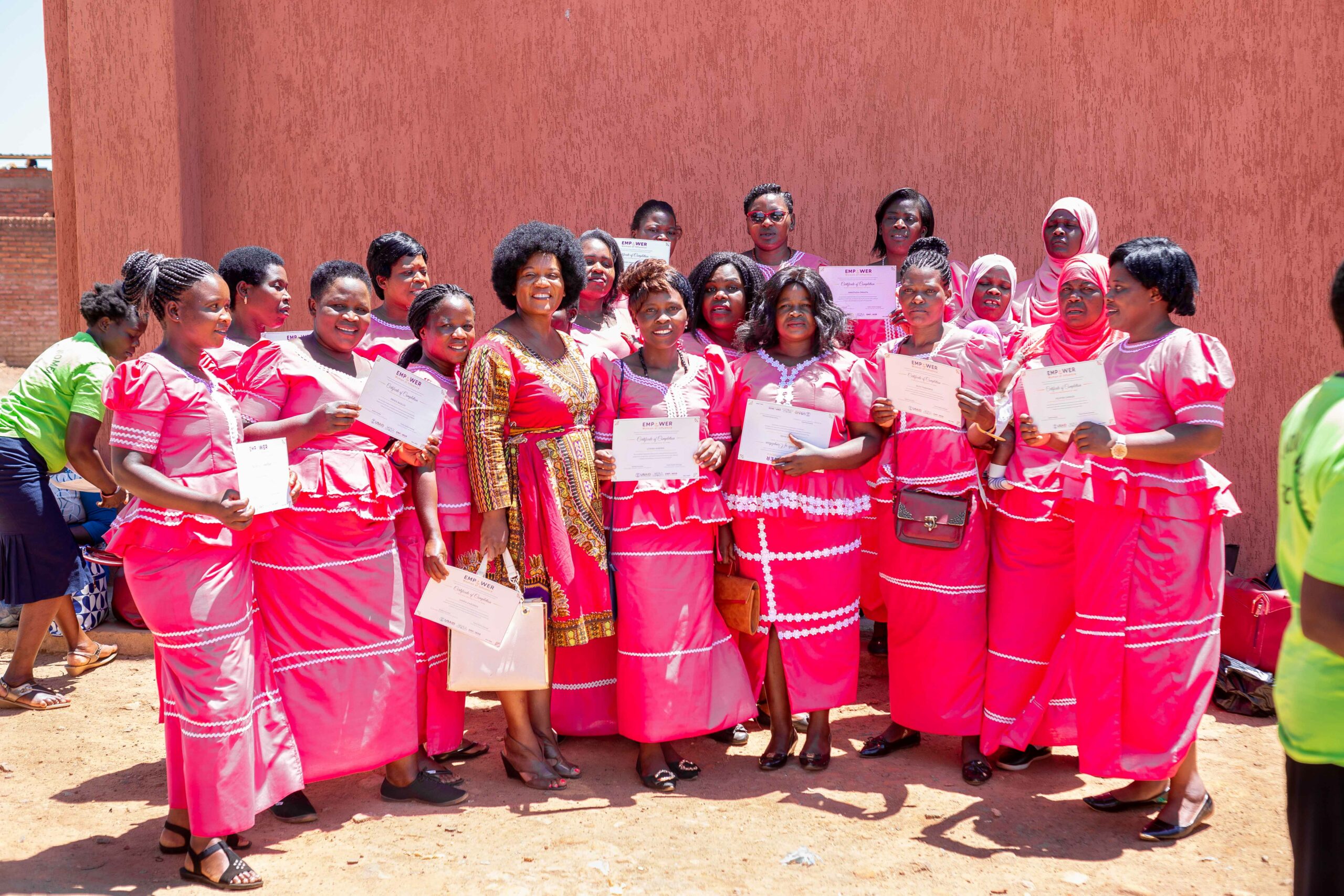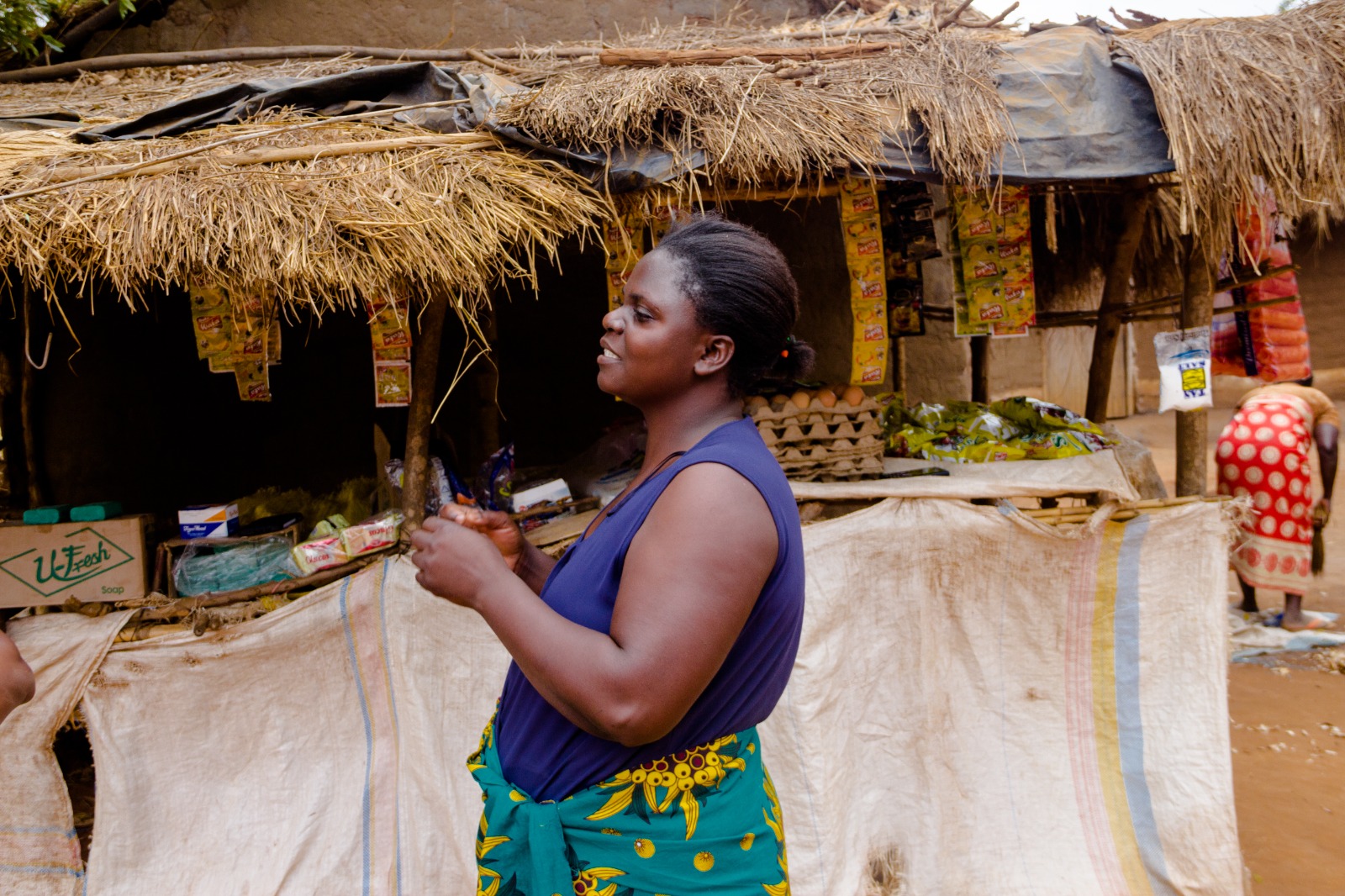
Alumni of the Irish Centre for Human Rights at the University of Galway Prisca Lawrence Chipao is co-founder of Empower, Malawi, an initiative that aims to empower Malawian women starting out in business. As in many patriarchal societies, Women in Malawi face many barriers. Chipao tells the story of Melifa Kulemera, who survived an abusive marriage to become financially independent with the help of Empower. The story illustrates the transformative power of targeted support initiatives and is also a fantastic example of how University of Galway is contributing concrete positive effects for individuals in distressed circumstances far across the planet.
The Irish Centre for Human Rights (ICHR) at University of Galway is a leading academic human rights institution, dedicated to the study of human rights, peace and conflict, international criminal law and humanitarian law, international refugee and migration law, gender and human rights and climate justice. For me, studying at the Centre has proven an invaluable experience. My study there significantly deepened my understanding and interest in the roles and responsibilities of states and international communities in safeguarding people’s social, economic, and developmental rights. This enhanced understanding has greatly improved my advocacy skills, allowing me to effectively champion for these rights. Importantly, the Centre also provided a vital opportunity to network with people and organisations working in this area, creating knowledge-sharing opportunities beyond my course of study.
The 2030 Sustainable Development Goals (SDGs) emphasise sustainable development that not only addresses immediate challenges, but also ensures long-lasting impact for future generations. These goals have brought attention to a range of critical development and inclusion issues, with a focus on marginalised groups such as women.
In Malawi, as in many other patriarchal societies, women face numerous challenges that hinder their participation in economic and social progress. Situated in Southern Africa, the country lags in the human development index, ranking at 172 out of 193, while the Gender inequality index shows a wide development gap between men and women, ranking at 148 out of 166 countries in 2022.
Growing up in Malawi, I lived this reality, and my experience inspired me to advocate for Malawi’s women to become more empowered socially and economically – an essential step to effective participation in the sustainable development of the country.
In 2019, I founded the organisation Empower, Malawi. Empower emphasises inclusive development and aims to address the barriers that prevent women in Malawi from accessing opportunities. Empower has reached over 200 women, providing them with business trainings, psycho-social support and business loans. The overall strategy is founded on SDG 5 (gender equality), SDG 10 (reduced inequalities) and SDG 8 (decent work and economic growth).

Melifa Kulemera, from a remote area within the capital city Lilongwe, is a beneficiary of the Empower programme.
Her story is one of a woman surviving an abusive spouse and facing community ridicule and a failed justice system. Without any education, her efforts to get employment were unsuccessful as the country faces high unemployment rates coupled with a bias towards those with some education.
Melifa is the sole provider for her three children, as her spouse refused to provide for their children after she reported him to police for physical abuse. Finding herself in a difficult survival situation, Melifa sought small business opportunities to earn some income for herself and her children. Unfortunately, as a developing country, Malawi is not set up to adequately support vulnerable people like Melifa. With no government social support and no access to commercial loans due to lack of collateral, Melifa’s hopes of starting a business were a waning.
When Empower heard Melifa ’s story, they took her in and successfully trained her in business skills through the Mzimayi Wa Lero (Modern Woman) training programme, which runs for six weeks. On completion, Melifa was supported with a business loan which she used to start a small-scale grocery business and boost her domestic farming.
Melifa says of the support, “The […]training made me realise that I can start a small business with whatever little I have and that with determination, commitment, discipline and the right support, I can manage to support my family. Having financial and skills support is useful but difficult to access, especially for women from remote areas like me; the training and financial capital has helped me to have financial independence which gave me confidence to leave my abusive marriage.”
Melifa’s journey to financial independence illustrates the transformative power of targeted support and empowerment initiatives. The work of Empower and Melifa’s story highlight the crucial intersection of women’s empowerment and sustainable development. Empower is challenging traditional gender norms and advocating for more inclusive development strategies. Sustainable development can only be achieved when it trickles down to individuals and families, particularly those who are most marginalised. Their safety and success should be the main goal of all development efforts.
Empower’s call for women in Malawi to be included in all development efforts is now even more grounded in both national and international collaborations for policy lobbying, as this issue resonates in many parts of the world where gender inequality persists. Through initiatives like Empower, and the broader implementation of SDGs that prioritise gender equality and inclusion, we can work toward a future where every human, regardless of gender, race or social status, can participate equally in development.
Read more about Empower, Malawi here.
Profiles
